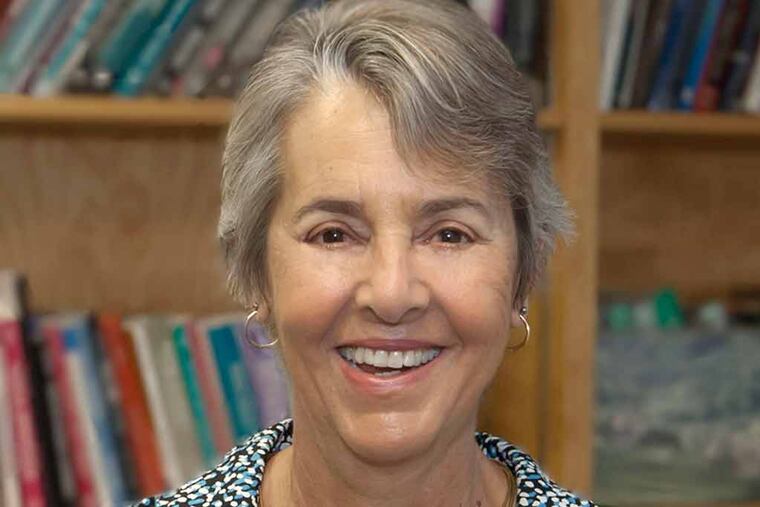Health systems urge employees to make advance care preparations
The recent orientation for new employees at Einstein Healthcare Network covered the usual stuff: benefits, patient privacy and safety, the importance of hand-washing.

The recent orientation for new employees at Einstein Healthcare Network covered the usual stuff: benefits, patient privacy and safety, the importance of hand-washing.
Then it got deeper. Did the new employees have a living will? Had they decided who could make medical decisions for them if they were incapacitated?
Carla Bryant, 44, a new employee relations compliance specialist, has worked in human resources for 19 years but never encountered that before.
"I was surprised, but I was like, 'Yeah, I need to address this. It's time,' " Bryant said.
She was an easy sell because she and her siblings had had to make tough decisions for their ailing father 15 years earlier - without his prior guidance. "We weren't always sure whether we were making a decision based on our personal feelings or something he would have done," she said.
She vowed to talk with her own children right away. And she did.
That is what Tina Phipps was hoping for when she began pushing the health system to encourage employees to do for themselves what they often ask of patients: Talk to someone you trust about what matters to you before it's too late.
Having watched many families grapple with difficult medical decisions, she thinks it's most valuable to choose a surrogate who can deal with problems you may not anticipate in making a living will.
"I think identifying someone who can interact with a medical team, who's knowledgeable about the patient and the patient's values, is more important than a ticking off of treatments desired," said Phipps, an anthropologist and ethicist who runs Einstein's Center for Urban Health Policy and Research.
Phipps concluded Einstein had a problem after she surveyed hospital employees and found they were no more likely than the general public to have a living will or to have chosen someone to have health-care power of attorney. Not quite a quarter of 2,247 employees who responded to the survey in fall 2013 said they had an advance directive.
After Phipps talked last year with HR director Lynne Kornblatt and CEO Barry Freedman, the health system took the unusual step of including a short presentation on advance directives in orientations for all new employees, along with periodic follow-up reminders.
Phipps said about a third of the nearly 950 people hired in the last 14 months had said they filled out the forms. The health system also is developing materials for promoting advance-care planning during annual employee training sessions.
Phipps sees talking about these issues as part of being a good citizen, and, for medical employees, good role modeling. "What's good for our patients should be good for our employees," she said.
She said she was not aware of any other Philadelphia hospitals with similar initiatives. Jefferson Health, one of the largest, said it did not have one. Penn Medicine urges patients and employees to prepare advance directives on National Healthcare Decisions Day, held each year on April 16.
Nathan Kottkamp, a lawyer who founded that event in 2006, said medical employers were more likely than others to push employees to choose health-care proxies.
The process helps them understand what patients and their families go through, he said. In general, he added, Americans are bad at talking about disability and mortality.
Officials at two big employers that pioneered employee advance-directive initiatives - Excellus BlueCross BlueShield in Upstate New York and Goodyear Tire & Rubber Co. - think the holiday season is a great time for families to discuss medical decisions.
"It's really about what matters to you," said Patricia Bomba, vice president and medical director of geriatrics at Excellus. "What are your values and beliefs? It's really about family."
Information on advance directives is part of her company's employee wellness plan. About 60 percent of workers have chosen health-care proxies.
Older people understand end-of-life issues, but younger workers need to realize that an accident could easily leave them unable to make their own decisions, Bomba said.
Brent Pawlecki, chief health officer at Goodyear, worked in emergency departments before going corporate. He saw that many people got costly care that only prolonged the inevitable. Now, he also sees that employees bring all the stresses of their lives to work, including worrying about sick relatives, family conflicts about health-care decisions, and hassles over estates after a relative dies. Some of that can be prevented if families plan for death and discuss their wishes openly.
"This should be a normal life process that we begin to plan for, just like our college fund . . . or 401(k)," he said. "We spend almost no time dealing with it or contemplating it."
After her orientation at Einstein, Carla Bryant went home to Olney and talked to her 18-year-old son, whom she wanted to make her proxy. "He was totally uncomfortable," she said.
So she asked her sister Stacy Boxley. They had the talk, even discussing Boxley's living will. "We had a very mature conversation about it," Bryant said.
Dave Paveletz, 27, a newly hired senior planning analyst from Northern Liberties, had a similar reaction after orientation.
He took the paperwork home and told his wife, "By the way, you're speaking for me if I get injured, so I hope the day before I didn't make you mad." They, too, had a good talk. They brought in their parents as witnesses and talked to them, too.
Bryant was glad Einstein had broached the subject. "It made me feel like, 'Wow, they care about me,' " she said.
215-854-4944
@StaceyABurling